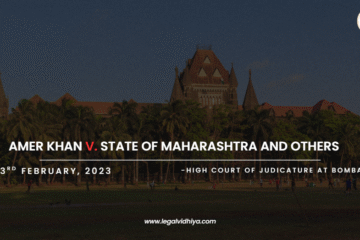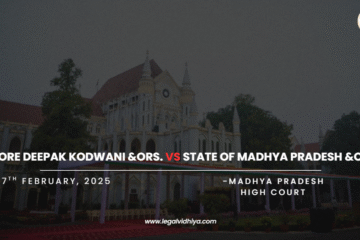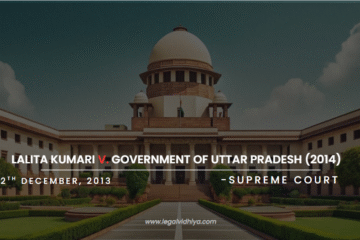
Civil Writ petition under Article 32 of Indian Constitution.
- Petitioner- People’s Union for Civil Liberties
- Respondent- Union of India
- Bench/ judges- K Singh, S S Ahmad
- Court- Supreme Court
- Statues contained- Telegraph Act 1885 and Constitution of India( article 19 and 21)
- Case Status- Not Overruled
- Main work-right to privacy, telephone call tapping, rights, liabilities and duties of citizens.
Introduction
We all have had debates of technology being a boon or bane. One bane of technology that took remained stringent throughout is invasion of privacy. Privacy be it of an individual or government of a country is the main object. With increasing dark technology and frauds comes great hackers and how law plays it’s part in it is one such contention in this case.
This case mainly resolves around privacy of telephonic calls and the right to have call freely without the fear of tapping.
FACTS OF CASE
Petitioner here is a voluntary organisation namely PUCL( Public Union of Civil Liberties).
PUCL filed a public Interest Litigation in the court of law challenging the provisos of Indian Telegraph Act 1885. Petition was filed with the view that the provisions are contrary to the fundamental rights and should be revised appropriately. Arbitrariness should be removed and upper hand given to the government should be controlled, procedure should be laid down. The writ was a result of the report of CBI(Central Bureau of Investigation) “Tapping of Politicians Phones”. which showed that the phone of a well established political leader was tapped by MTNL ( Mahanagr Nigam Limited) in proper procedure was not followed by them and had faults which was a harm to the fundamental rights such as privacy and freedom of that person.
Right to privacy has gained it’s value in Puttaswamy judgement in India.
ISSUES OF THE CASE
There arose two main issues:-
- Whether section 5(2) of the Telegraph ACT 1885 arbitrary? And needed rectification?
- Whether section 5(2) of the Telegraph ACT 1885 was being used to infringe the privacy of people?
Arguments
The main argument that took place included mentioning of our Fundamental Rights Guaranteed by the Constitution namely
ARTICLE 19- Right to freedom.
ARTICLE 21- Right to life and personal liberty.
It was contented in the court that the section 5(2) was an essential part for various state purposes such as maintaining of peace and security but it was high time to review the section and lay down proper procedure to be followed in order to prevent harming of privacy of individuals..
Respondent side which is Union of India here put ahead points such as striking this section would result in negative for the country and public interest, will jeopardise the security of the state.
It was also mentioned in the arguments that proper provisions and procedures have already been laid out as the permission of phone tapping can only be given by an officer specifically authorised by the Central or State Government that too after verifying the needs and other facts and not just arbitrarily. They also mentioned there was no arbitrariness as proper reasoning had to be provided for tapping, and gates of government are always available for action if misused of power takes place.
These were some of the main contentions laid down in the arguments. As topic is one such of national importance and individual importance at the same time.
The Apex court of India, Supreme Court took in it’s purview Indian Judgements as well as International Sources, and after hearing both the sides held that right to privacy cannot be violated except by a procedure established by law. It was further held that 5(2) was a vital section and laid down particular circumstances in which phone tapping could be done but the procedural safeguards were missing. So as a result the section wasn’t struck down but guidelines for it’s use were formulated by the court.
The court in it’s judgement relied on the judgements of
- R. Rajgopal vs. State of TN (AIR 1995 SC 264
- Gobind vs. State of MP & Anr. (AIR 1975)
- in Kharak Singh vs. State of U.P. & Ors. (AIR 1963)
it was curtailed that right to privacy was not expressly provided in the constitution and it was the result of judicial decisions and societal changes. Right to privacy was a part of Right to life and liberty under Article 21, whose infringement could only be done by only procedure established by law.
It was held that the right to listen and attend a conversation on phone at a home or any place without interruption and interference falls under the umbrella of Right to Privacy. And therefore, tapping would fall under Violation of Article 21 unless done in a procedural manner.
ARTICLE 19(1)(a) were a part of citizen’s right to freedom of speech and expression and hence it’s interception would be controlled and governed by ARTICLE 19(2) of the Constitution of India. And it’s a well-known fact that the Constitution of India is Supreme.
Report of Second press Commission “tapping of telephones was a serious invasion of right to privacy” if eavesdropping is genus than technological eavesdropping is a species. It was also recommended that telephones may not be except the circumstances involving interest of national security, public order, investigation of crime and similar objectives.
Section 5(2) was studied and it was held that the provision clearly lays down conditions under which order for interference/interception/tapping could be given. 1st stage is to clarify that whether the circumstance falls under “occurrence of any public emergency” or does it fall under “interest of public safety”. The officer who will be appointed by the court had to content that it was necessary and expedient in the interest of five grounds enumerated under this section:
- Friendly relations with foreign States;
- Preventing incitement to the commission of an offence.
- Sovereignty and integrity of India;
- Public order;
- Security of the State;
Most importantly the officer was duty bound to issue the order in writing. After taking in consideration court refused to take down as declare section 5(2) as unconstitutional and emphasized the need to follow the two requisites laid down and as well as the grounds.
As we all are aware that separation of power is necessary, that provision was followed in this case as well the court refused to entertain the petition that judicial scrutiny should be made as only procedural safeguard before passing of interception orders. It was contended that power to make rules especially in this regard lies with the Central Government and court also censured the government fot not framing proper laws despite the criticism being faced because of the provision.
The court did lay down the guidelines in the interim period in order to aid the process and remove arbitrariness and to protect the right to privacy.
- If telephone tapping was to be undertaken orders were to issued from the Home Secretary of either Central Government or State Government and this power to be delegated only if emergency arises.
- Proper records to be maintained, and procedure to be followed.
- Formation of review committees at both central and state level to assess and assist compliance with the law and it’s procedure.
- The authority making the interception must consider if it was necessary to obtain the information as it has been done i.e through such orders.
- Orders to be expired after two months from the date of issue, total period of operation to be only six months.
CONCLUSION
Right to one’s personal life and privacy is an essential part of life, guaranteed under Constitution of India as well as one of the basic human needs in the time of this rat race life.
Be it internet hacking or telephone tapping such practices have always been condemned and sites involving in such practices have always faced backlashes, be it Facebook or WhatsApp, accepting T&M does not mean surrender of our rights to these companies and firms and if it happens, everyone is liable and should use voice against such happenings.
It is well concluded that telephone tapping is a part of infringement of the fundamental right to privacy. growing technology brings with it the easier access to both sides bad and good, all our information is tapped in our phones just a click or OTP away. Our information can be accessed by government by satisfying the reasons stated above and by hackers as soon as they crack the code which can lead to misleading of our vital information. So its also becomes our responsibility to check the privacy terms of the App and than grant access.
Access can be necessary for security reasons to track enemies, drugs help better governance, border security as well as many conversation happen through these intermediaries.
Written By: Tanya Setia intern under legal vidhiya





0 Comments